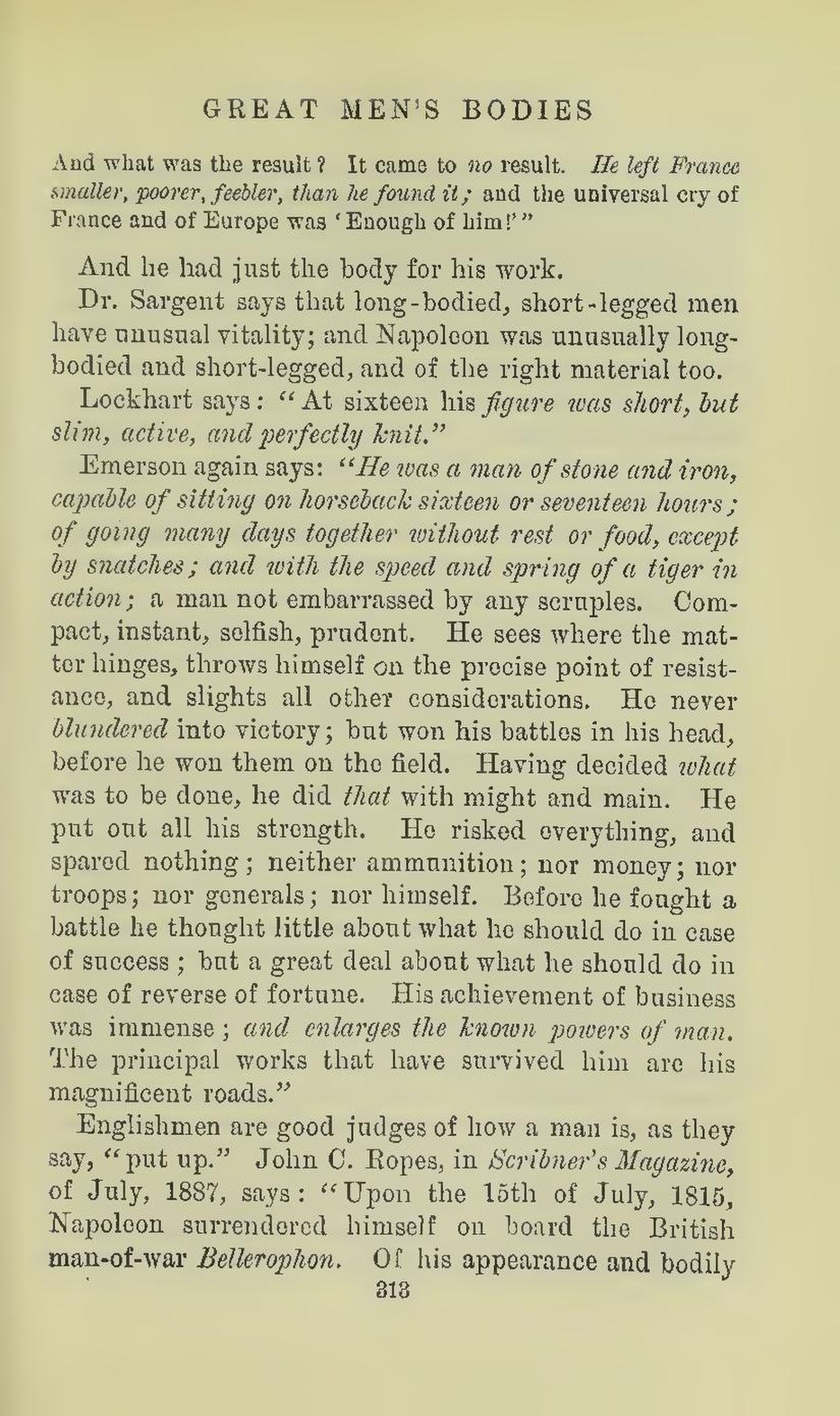GREAT MEN'S BODIES
And he had just the body for his work.
Dr. Sargent says that long-bodied, short-legged men have unusual vitality; and Napoleon was unusually long-bodied and short-legged, and of the right material too.
Lockhart says: "At sixteen his figure was short, but slim, active, and perfectly knit."
Emerson again says: "He was a man of stone and iron, capable of sitting on horseback sixteen or seventeen hours; of going many days together without rest or food, except by snatches; and with the speed and spring of a tiger in action; a man not embarrassed by any scruples. Compact, instant, selfish, prudent. He sees where the matter hinges, throws himself on the precise point of resistance, and slights all other considerations. He never blundered into victory; but won his battles in his head, before he won them on the field. Having decided what was to be done, he did that with might and main. He put out all his strength. He risked everything, and spared nothing; neither ammunition; nor money; nor troops; nor generals; nor himself. Before he fought a battle he thought little about what he should do in case of success; but a great deal about what he should do in case of reverse of fortune. His achievement of business was immense; and enlarges the known powers of man. The principal works that have survived him are his magnificent roads."
Englishmen are good judges of how a man is, as they say, "put up." John C. Ropes, in Scribner's Magazine, of July, 1887, says: "Upon the 15th of July, 1815, Napoleon surrendered himself on board the British man-of-war Bellerophon. Of his appearance and bodily
313
